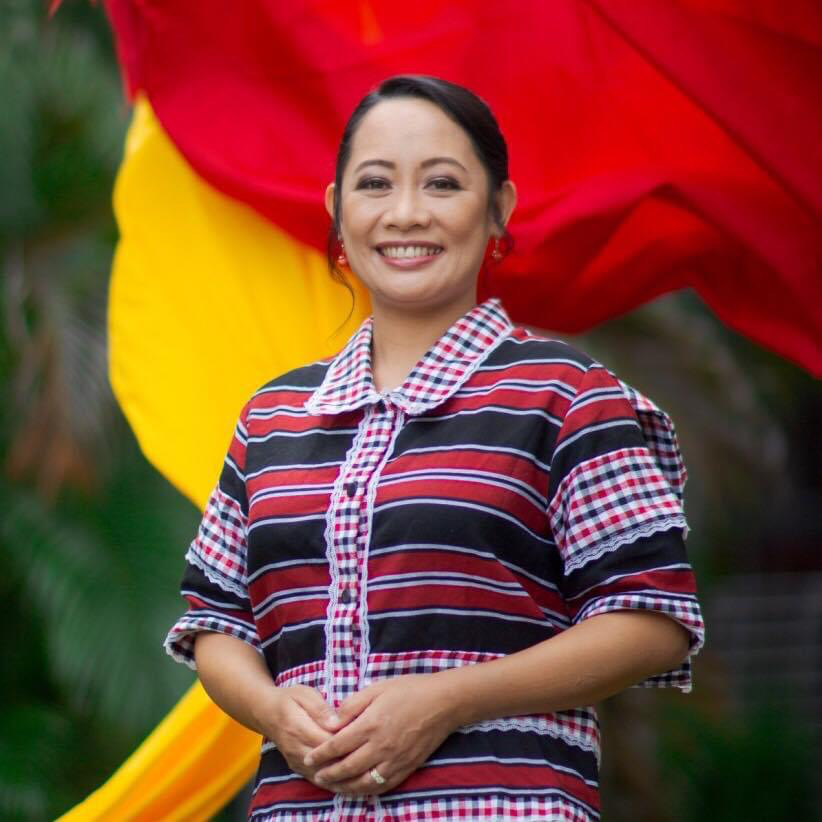Every June, Leading Innovation in Health Care and Education brings together scholars from across the globe. To highlight our vibrant community, we are profiling several of our recent alumni, who share their thoughts about the curriculum, the program faculty, and their experience as learners. For this blog post, we sat down with Malaya Santos, MD, MPH, dean of Mapúa School of Medicine.
Harvard Macy Institute: How would you describe your personal and professional background?
I am a proudly Ibaloi and Kankanaey, both groups of indigenous peoples from the Cordillera region in the north of the Philippines. I am trained in dermatology, public health, tropical medicine, and distance education, but I identify first and foremost as a public health physician. Over the past three decades, my life’s work has been at the intersection of community medicine, education, and research in various capacities within the academic, public health, and nongovernment sectors. As founding dean of the Mapúa School of Medicine, my dream is to harness the transformative power of education through active, immersive, and authentic learning that places a strong emphasis on health promotion, disease prevention, and the social determinants of health.
Outside of academic endeavors, I have designed and implemented capability-building projects for health workers and community-based health programs in different parts of the Philippines. I embrace lifelong learning as both a teacher and a learner, within and beyond the walls of physical and digital classrooms.
Harvard Macy Institute: What led you to apply to our Leaders program?
As an educator, I advocate for the integration of primary health care, community engagement, and health systems science in all areas of the medical curriculum. I applied to the Leading Innovation in Health Care and Education program in 2020, just before the COVID-19 pandemic. At the time, I was leading curriculum redesign, faculty development and leveraging digital innovations to help integrate nontraditional clinical outcomes, such as social accountability, professionalism, and other “soft skills”, into the curriculum. Everything changed that year.
The opening session titled “Are there Silver Linings in the Covid-19 Healthcare Crisis?”, prompted deep reflection on aligning my personal mission with the opportunity to drive transformation. Despite the challenges of building resilience and maintaining continuity in education in health care during travel restrictions and lockdowns, it offered a unique perspective on growth amid adversity. Looking back, the pandemic put a spotlight on the importance of public health and accelerated the widespread adoption of technology in education and healthcare, both locally and globally.
Harvard Macy Institute: How would you describe your overall experience in this program?
The Leading Innovation in Health Care and Education program was life-changing, because it taught me the science and the art of leading innovation in the face of tremendous change and uncertainty. I am now much better equipped to approach transformation through a broader global lens. I was able to re-examine and contextualize the work that I do at home and gain the confidence to take calculated risks that have, fortunately, led to meaningful successes. In short, it effectively altered the trajectory of my career. Even more importantly, it has made me braver in actively pursuing alignment between my personal and professional goals, which led me to move to a new organization and take on the challenge of setting up a new medical school.
Harvard Macy Institute: In what ways has this program been applicable to your professional interests?
Many of my recent research and professional activities have concentrated on teaching non-clinical competencies, sometimes referred to as “soft skills,” such as teamwork, collaboration, communication, professionalism, leadership, and social accountability. Although admittedly challenging, these skills are critical for individual success as well as social impact. Their instruction and assessment should be carefully designed and not relegated to the hidden curriculum. These topics—as well as digital strategies for education, disease surveillance, health service delivery, and improving health access for marginalized and underserved populations—were tackled in the program. The sessions on behavioral economics and using culture to guide change were also very useful and practical. Over the years I have replicated many of the approaches including utilizing design thinking and ‘step-back’ consultation methodology.
Harvard Macy Institute: What are the two most important takeaways that you gained from the program?
As a leader in health professions education, the most important takeaways for me were the importance of systems thinking, strategic thinking, and strategic change management. I also found the concept of “Jobs to Be Done” from the late HBS professor Clayton Christensen to be incredibly powerful and helpful.
Harvard Macy Institute: What impact has this program had on how you lead change at work? Can you provide an example?
When I am faced with a complex challenge or multifaceted problem that needs to be solved, I have developed the habit of thinking in terms of: “What is the job to be done?” For example, together with a team of dedicated and passionate educators, we systematically engaged with key stakeholders for the design of a medical curriculum that integrates digital mastery and global perspectives on public health, patient safety, and interprofessional education throughout the medical curriculum. As expected, the process was neither simple nor straightforward. While navigating through a maze of government policies and protocols, we reminded ourselves that our principal job was to open the school. Given the largely traditional regulatory environment, we refocused on compliance, with the primary aim of obtaining regulatory approval. The broader implementation of our plans for curriculum redesign and innovation can follow later. Considering the constant uncertainty and change in this environment, I also find myself consistently referring to HBS professor, John P. Kotter’s 8 Steps for Leading Change.
While the journey was complicated and challenging, it was worth every effort, and I have no regrets whatsoever. Martin Luther King Jr.’s quote, “The arc of the moral universe is long, but it bends toward justice,” is often referenced in global health. In that spirit, I feel that embracing the tools of disruptive innovation to work towards transformation has helped me to bend the arc a little bit faster.
Harvard Macy Institute: How does this program differ from other continuing medical education or professional development courses you have taken?
I love how the program is interprofessional and interdisciplinary and tackles a lot of nonclinical aspects of health care and education. One concept stuck with me was psychological safety and its importance for innovation, patient safety, and quality assurance. Another was competency-based time-variable education, which can be transformative when operationalized.
Harvard Macy Institute: Would you recommend Leaders to a colleague? If so, why?
Yes, I would definitely recommend this program. Every aspect is excellent, from the speakers and topics to the faculty and scholars. It is always inspiring to be in the company of kindred spirits and have the opportunity to network, collaborate, and exchange best practices. I am very happy to be part of this wonderful community.
Check out the Leading Innovation in Health Care and Education website for more information!

Author BIO
Malaya Santos, MD, MPHTM, (Leaders ’20) is the founding dean of the Mapúa School of Medicine. She completed medicine and residency training in dermatology at the University of the Philippines-Philippine General Hospital and holds a master’s degree in public health and tropical medicine from Tulane University. Her areas of professional interest include primary health care, community empowerment, and health systems science. Malaya can be followed on LinkedIn.
HMI Staff


